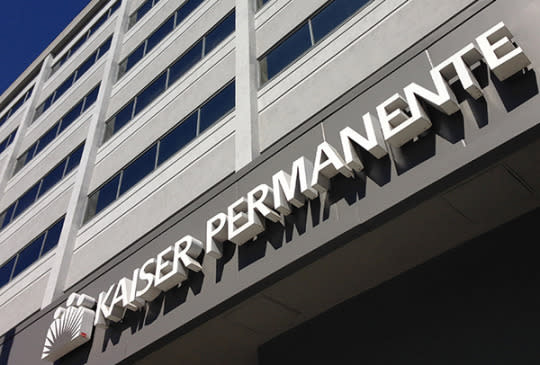Managed Care Giant Kaiser to Open Medical School

The healthcare giant announced they are opening a medical school. (Photo: Getty Images)
Kaiser Permanente, the managed care giant that treats more than 10 million people in the U.S., is opening its own medical school somewhere in Southern California, sometime in 2019.
Kaiser, based in Oakland, California, says traditional medical schools are failing to keep up with changes in ways patients access health care, relying less on doctors’ offices and hospitals, and more on mobile technology.
“This is about meeting the total health needs of people and communities now and into the future,” says Dr. Edward M. Ellison, an executive sponsor for the School of Medicine and executive medical director, Southern California Permanente Medical Group. “We have an opportunity, even an obligation, to expand our physician education program to prepare new doctors to practice 21st-century medicine and improve the health of communities.”
Ellison tells Yahoo Health that The Kaiser Permanente School of Medicine will redesign physician education around “pillars” that include providing “high-quality care to patients beyond traditional medical settings, acknowledging the rising importance of collaboration and teamwork to inform treatment decisions, and addressing disparity issues to deliver health equity.”
Related: What Doctors Wish They Learned In Medical School
In an e-mail to Yahoo Health, a spokesman for the company says the medical school may have “additional physical or virtual ‘campuses’ in other Kaiser Permanente geographies, changes in technology, and opportunities to offer intensive programs of reduced duration (3-year) or expanded (5-year) educational programs.”
Most medical school programs last four years.
George Thibault, president of the Josiah Macy Foundation that provides grants for innovative health care education, tells Yahoo Health that many new medical schools are the result of partnerships between health care groups and universities. Kaiser, however, is “unique in proposing to go it alone, not in a partnership,” Thibault says.
“If they do it well, it’s a great idea,” he says.
The Association of American Medical Colleges (AAMC) estimates a shortage of between 45,000 and 90,000 U.S. physicians by 2025.
“The opening of a new medical school will help address this shortage,” Dr. John Prescott, AAMC chief academic officer, tells Yahoo Health.
However, Kaiser’s announcement is just the first step in building and operating a medical school, which must be accredited by the Liaison Committee on Medical Education, recognized by the U.S. Department of Education as the reliable authority for accrediting medical schools.
“It’s a multistage process of moving from an idea to a fully accredited medical school,” Prescott tells Yahoo Health. “What Kaiser has done is announce its intentions. It’s years away from being a fully accredited school.”
Kaiser, the country’s largest managed care provider (HMO), runs 38 hospitals in eight states and the District of Columbia. The company employs 17,791 physicians, according to its website, and currently has about 600 doctors completing residencies at Kaiser sites.
Health care experts say opening its own medical school will provide a steady stream of physicians trained in the Kaiser way – a team approach of doctors, nurses, therapists and social workers working on behalf of patients.
“It’s a different model from when I trained 30 years ago,” Prescott says. “That model then was much more physician-centric.”
Kaiser is known for providing high quality preventive care, and some of its hospitals are regulars on the U.S. News & World Report’s Best Hospitals list. Kaiser Permanente San Francisco Medical Center, for instance, was raked #12 in California and #3 in the San Francisco metro area on the magazine’s 2015-16 list.
Related: Women, minorities still underrepresented in medical specialties
Let’s keep in touch! Follow Yahoo Health on Facebook, Twitter, Instagram, and Pinterest.
